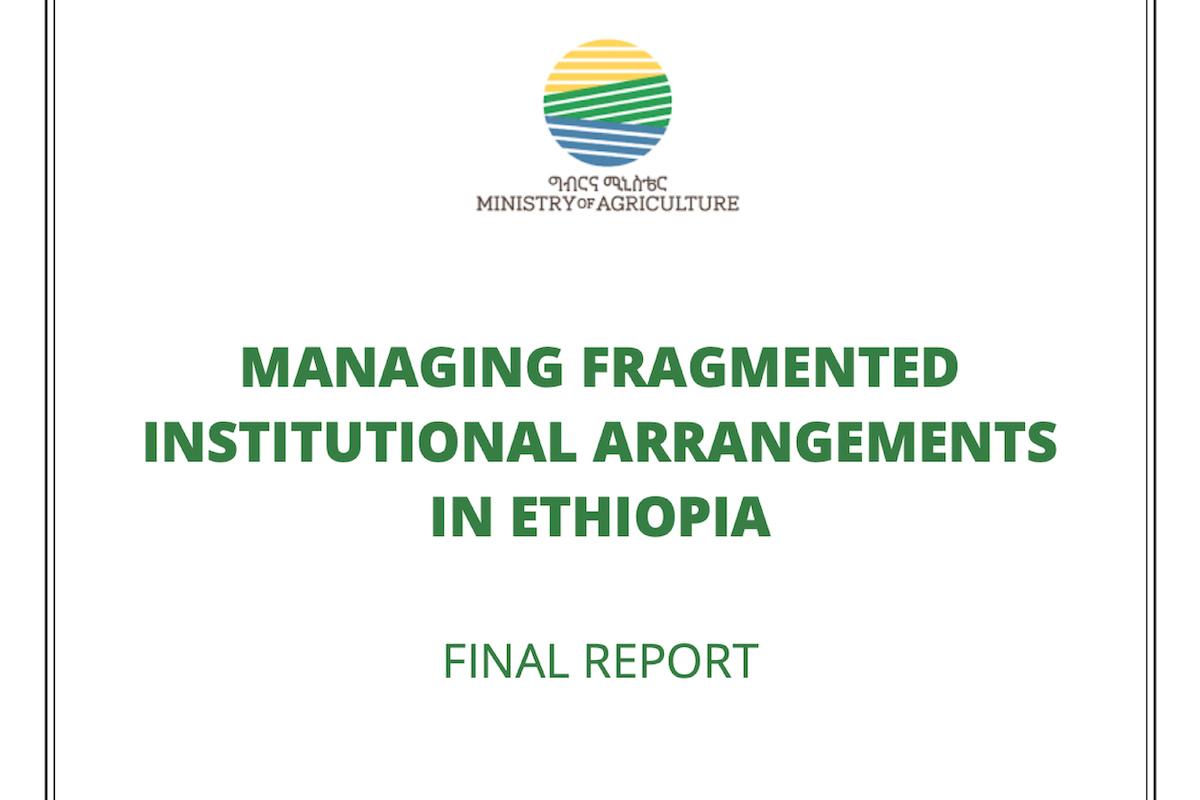
- Version
- Download 252
- File Size 402.98 KB
- File Count 1
- Create Date September 14, 2023
- Last Updated September 14, 2023
MANAGING FRAGMENTED INSTITUTIONAL ARRANGEMENTS IN ETHIOPIA
In Ethiopia, rural land administration services are provided by regional states under the guidance, oversight, and support of the Federal Ministry of Agriculture, through its Land Administration and Use Directorate under the Natural Resource Sector. At regional state level, land administration services were originally provided by land administration offices under the Agriculture Bureaus in the six regional states of Amhara, Oromia, SNNP, Tigray, Gambela and Benishangul-Gumuz (the other regional states. The land administration office in Amhara and Afar region was later elevated to a separate Bureau for rural land. It is Rural land administration and use bureau in Amhara, Environmental protection, rural land administration and use bureau in Afar; and investment, rural land administration and use bureau in Benishangul-Gumuz regions. Whereas in Oromia and Tigray regions, it was elevated into a Bureau that combines both rural and urban land. In the other regions (including the newly emerged Sidama region), rural land administration is still part of the Agriculture Bureau. On the other hand, urban land services are provided at city level by regional states under the oversight and guidance of the federal Ministry of Urban Development and Housing. In general, the Ministry of Agriculture (the rural land administration and use directorate) is the lead institution in the countrywide implementation and oversight of rural land administration. The responsibility of rural land administration in the Ministry of Agriculture lies in two offices namely the rural land administration and use directorate and the Agricultural Investment support directorate. The first is responsible for land use and land tenure, while the second is responsible for support and supervision of large-scale agricultural investment lands. On the other hand, the ministry of urban development and construction (MoUDC) is responsible for guidance and oversight of urban land administration. However, the institutional separation between urban and rural areas is an essential weak point of the institutional setting in Ethiopian land administration as there are peri urban land holders whose land rights are not registered either by the urban or the rural land administration institutions.
Attached Files
| File | Action |
|---|---|
| Managing Fragmented Institutional Arrangements in Ethiopia.pdf | Download |